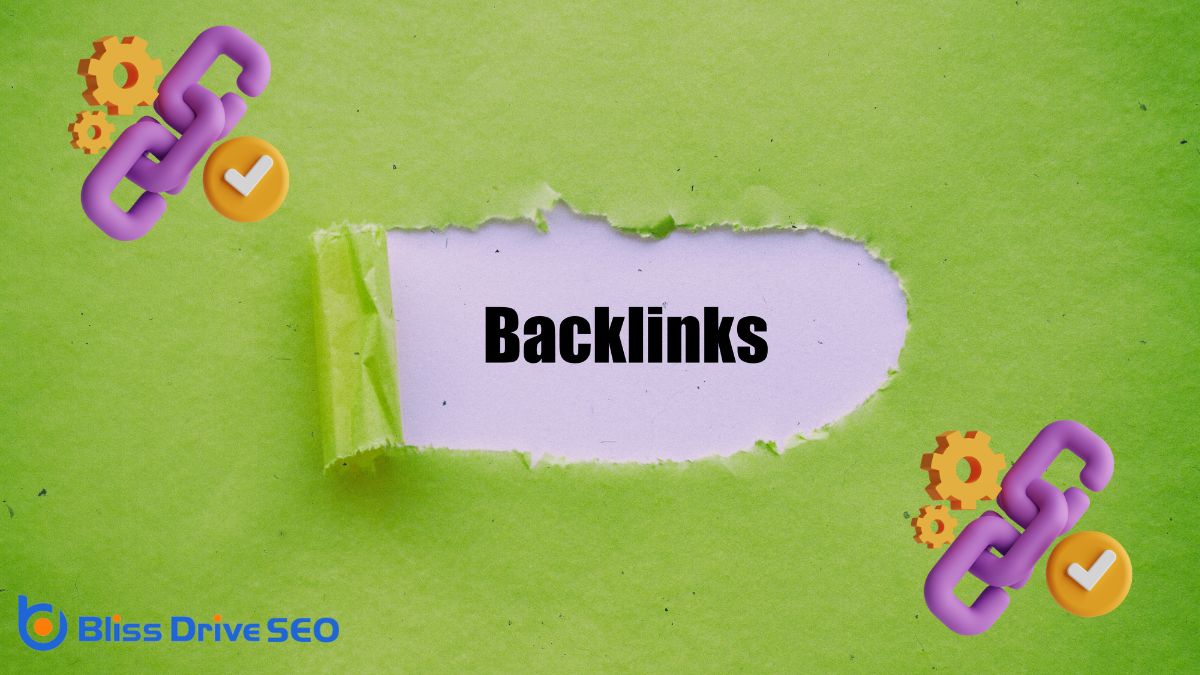Digital Marketing Services
Learn More About Us

When you're looking to enhance your SEO strategy, the idea of searching your competitors' backlinksLinks from other websites pointing to your website, crucial for SEO. can seem like a promising tactic. On the one hand, it offers insights into high-authority sites and content gaps, but on the other, it raises questions about ethical boundaries and the risk of imitation. You might wonder if this approach will truly give you an edge or simply leadA potential customer referred by an affiliate who has shown interest in the product or service but h... you down a path of redundant strategies. As you navigate this terrain, it's essential to weigh the potential advantages against the pitfalls to guarantee you're crafting a strategy that stands out. How can you effectively balance these considerations?

When it comes to understanding backlink analysis, you'll find that it's an essential aspect of any effective SEO strategy. Backlinks, or inbound links, are links from other websites pointing to your site. They're vital because they signal to search engines that your content is valuable and credible.
By analyzing your backlinks, you can gain insights into your site's authority, relevance, and overall online presence.
To start, use tools like Ahrefs, SEMrush, or Moz to gather data on your current backlinks. Look for patterns in the types of sites linking to you, the anchor textThe clickable text in a hyperlink, important for SEO as it provides context for the linked page. used, and the quality of these links. This process helps you identify which backlinks positively influence your site's rankingsThe position at which a website appears in the SERP. and which ones might be harmful.
Pay close attention to the domain authority of the linking sites. High-quality backlinks come from reputable sources and can greatly boost your search engine ranking. Conversely, links from spammy or irrelevant sites can harm your credibility.
Regularly monitoring your backlink profile allows you to make informed decisions on pursuing new links and disavowing harmful ones. By mastering backlink analysis, you'll enhance your SEO efforts, making your site more attractive to search engines and users alike.
When you examine your competitors' backlinks, you can uncover new link opportunities that can boost your site's authority.
By understanding their strategies, you can also refine and enhance your own SEO efforts.
This research gives you a competitive edge by revealing gaps and strengths in your approach.
Uncovering potential backlinks through competitor research is a powerful strategy that can elevate your site's authority and visibility. By examining where your competitors are getting their backlinks, you can identify opportunities you might've missed. This approach helps you tap into networks and platforms that are already inclined to link to similar content. If a site is willing to link to your competitor, there's a good chance they'll be interested in your content, too, provided it offers value.
Start by analyzing your competitors' backlink profiles to spot high-quality links they're earning. Look for authoritative domains linking to them and evaluate the type of content that's attracting these links. This insight allows you to create content that meets or exceeds the standards set by your competitors.
Moreover, you'll uncover niche-specific directories, blogs, and forums where your competitors are getting mentioned. Reaching out to these sites with your own content can open doors for new backlinks. The goal is to build relationships and demonstrate how your content can benefit their audience.
Competitor research's benefits extend far beyond merely mimicking successful strategies; it empowers you to enhance your SEO in innovative ways. By analyzing your competitors' backlinks, you can uncover patterns and trends that mightn't be immediately obvious.
This isn't just about copying what works for others; it's about using the insights gained to refine your own approach. You can spot gaps in your strategy and fill them with unique, compelling content that attracts high-quality backlinks.
Understanding your competitors' strengths and weaknesses provides you with a roadmap to navigate your SEO journey more effectively.
You'll learn which keywordsWords or phrases that users type into search engines to find information. they're targeting successfully and identify opportunities where you can outperform them. Additionally, you'll gain insights into their content marketingA strategic approach focused on creating and distributing valuable, relevant, and consistent content... strategies, allowing you to spot potential collaboration opportunities or even avoid tactics that haven't worked well for them.
Maneuvering the landscape of competitors' backlinks offers both opportunities and challenges. While dissecting your competitors' backlink strategies can provide valuable insights, it's vital to remain aware of potential risks and drawbacks.
First, focusing too much on competitors might lead you to neglect your unique strengths. You might end up replicating strategies that don't align with your brand, which can dilute your distinct voice.
Another risk involves the ethical gray area. Scrutinizing competitors' backlinks might tempt you to use tactics that could harm their SEO standings or violate search engine guidelines. Such actions not only risk penalties but can also tarnish your reputation.
Additionally, chasing after your competitors' links can lead to wasted resources. Every competitor's strategy won't necessarily work for you, and mimicking their approach mightn't yield the same results. It's easy to get caught in a cycle of constantly reacting to competitors and losing sight of your long-term goals.
Finally, the data you gather mightn't always be accurate or up-to-date, leading to misguided decisions. It's important to balance competitive analysis with original strategies that align with your business objectives, ensuring sustainable growth.
Steering through the world of backlink analysis begins by equipping yourself with the right tools. To effectively search and analyze your competitor's backlinks, you'll need reliable and efficient solutions that provide accurate data and actionable insights.
These tools can help you understand your competitors' strategies, track link-building efforts, and gauge your own site's performance. Here are some top tools you should consider:
Using these tools, you'll gain a clearer picture of your competitors' backlink landscapes, helping you make informed decisions about your own strategies.
Don't just collect data; interpret it to understand which links are driving traffic and influence and guarantee your efforts align with your goals and competitive positioning.
Start by analyzing your competitors' link sources to identify where they're gaining an edge.
Look for high-authority websites that link to them, as these sites can boost your own site's credibility.
Don't miss niche-specific opportunities that align closely with your industry for maximum impact.
Uncovering your competitors' link sources provides valuable insights into potential link-building opportunities for your own site. By understanding where your competitors are getting their backlinks, you can identify patterns, strategies, and specific websites that might also link to your content.
This process helps you pinpoint gaps in your current link-building strategy and capitalize on opportunities you might've overlooked.
To effectively analyze your competitors' link sources, follow these steps:
Identifying high-authority websites is an essential step in enhancing your link-building strategy. These sites, recognized for their credibility and influence, can greatly boost your own website's visibility and reputation.
To discover these websites, start by analyzing your competitors' backlinks. Look for sites that link to multiple competitors, as they might be open to linking to you, too. Use tools like Moz's Domain Authority or Ahrefs' Domain Rating to evaluate the authority of these potential link sources.
You should also pay attention to the relevance of these websites to your industry to guarantee the links you acquire are valuable. High-authority sites pertinent to your niche can provide more meaningful traffic and improve your search engine ranking.
Don't just chase high authority for the sake of it; relevance is key.
Once you've identified these sites, think about how you can offerThe specific product or service being promoted by affiliates. value to them. Whether it's through guest posts, expert interviews, or valuable content, showing them why linking to you benefits their audience is essential.
To gain a competitive edge in your link-building strategy, explore niche-specific opportunities that align closely with your industry. By focusing on these targeted areas, you'll connect with an audience that already has an interest in your field, increasing the likelihood of engagementThe interactions that users have with a brand’s content on social media. and credibility.
Start by analyzing your competitor's backlinks to discover which niche sites are linking to them. These sites are potential gold mines for your link-building efforts. They've already shown interest in your industry, making them more receptive to your outreach. You can identify gaps and untapped opportunities that your competition hasn't fully capitalized on yet.
Consider these steps to uncover niche-specific opportunities:
How does your business stand out in a crowded marketplace? Differentiating from competitors isn't just about offering a unique product or service; it's about understanding your audience and delivering value that others can't match.
By analyzing competitors' backlinks, you gain insights into their strategies and partnerships. However, it's crucial to transform this information into a strategy that highlights your unique strengths.
Start by identifying what makes your business unique. Is it superior customer service, innovative technology, or a distinct brand voiceThe consistent tone and style of communication used by a brand across all channels.? Use these strengths to craft content and marketing strategies that resonate with your target audience.
While it's helpful to know where competitors get their backlinks, the goal is to find gaps in the market and address unmet needs.
Consider how you can build relationships with niche websites or influencersIndividuals with the power to affect the purchasing decisions of others due to their authority, know... that align with your brand values. This approach not only boosts your credibility but also guarantees you attract a loyal customer base.

Conducting ethical research is essential for maintaining integrity and trust in your business practices. When you're exploring your competitors' backlinks, it's important to do so in a way that's both respectful and legal. This isn't just about following the rules—it's about building a reputation that others can respect.
Start by focusing on publicly available information and use tools that respect privacy and legal boundaries.
Here are some best practices to guarantee your research remains ethical:
Once you've gathered insights from your competitors' backlinks, integrating them into your strategy can greatly enhance your business approach.
Start by identifying patterns in the types of sites linking to your competitors. Are they getting links from industry blogs, news sites, or niche forums? This can guide you on where to focus your outreach efforts.
Next, look at the content that attracts the most backlinks. Are there specific topics or formats (like infographicsVisual representations of information, data, or knowledge intended to present complex information qu... or case studiesIn-depth analyses of specific instances or examples to highlight success stories or lessons learned....) that perform well? Use this information to adjust your content strategyA plan for creating, publishing, and managing content to meet business goals., creating pieces that are more likely to earn valuable links.
Consider reaching out to websites that link to multiple competitors but haven't linked to you yet. Craft personalized outreach messages, offering content or insights that fill a gap or enhance their existing material.
Lastly, monitor the impact of these new strategies. Use analytics toolsSoftware used to track and analyze website performance, user behavior, and marketing efforts. to track changes in your site's traffic and search rankings.
Adjust your approach based on what works and what doesn't. By continuously refining your strategy with these insights, you'll stay competitive and improve your online presence.
This proactive approach will guarantee you're always a step ahead.
By analyzing your competitors' backlinks, you can uncover valuable insights and opportunities to boost your SEO strategy. Focus on identifying high-authority sites and content gaps, but always maintain ethical standards to build your brand's unique strengths. Use the right tools to gather data and integrate these insights effectively into your approach. Remember, while it's beneficial to learn from competitors, your ultimate goal is to differentiate your brand and create a distinct presence in the marketplace.
